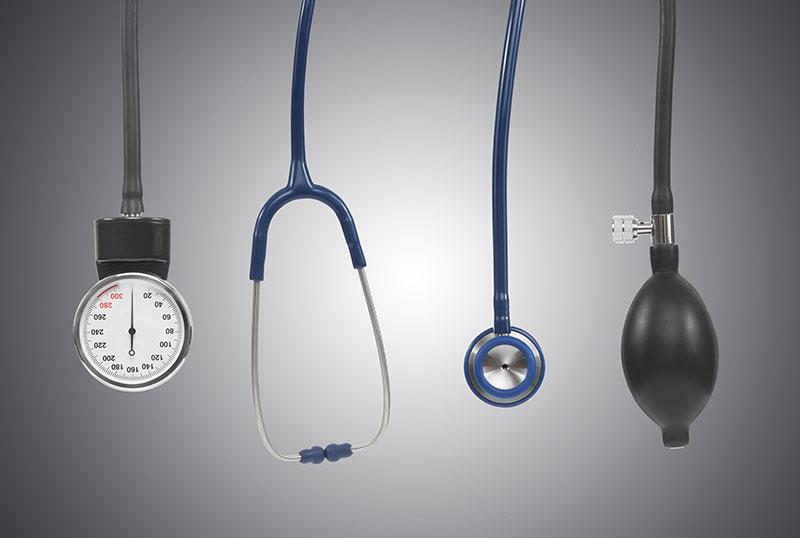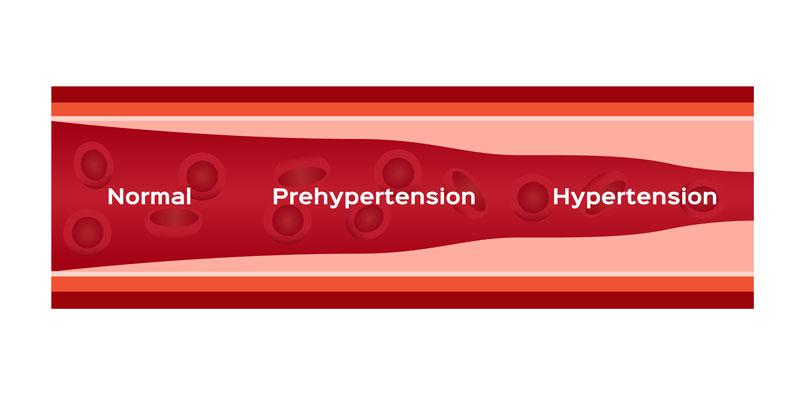 Oral and Maxillofacial Surgery is dentistry's surgical specialty encompassing a wide range of surgical procedures. An oral surgeon does everything from extracting wisdom teeth to reconstructing jaws. However, there are certain situations when an oral surgeon in Phoenix may advise you against an elective or not-so-urgent oral surgical procedure. This is usually when they know or suspect a medical condition that may affect the surgical outcomes and healing.
Oral and Maxillofacial Surgery is dentistry's surgical specialty encompassing a wide range of surgical procedures. An oral surgeon does everything from extracting wisdom teeth to reconstructing jaws. However, there are certain situations when an oral surgeon in Phoenix may advise you against an elective or not-so-urgent oral surgical procedure. This is usually when they know or suspect a medical condition that may affect the surgical outcomes and healing.
Hypertension is one of the most common medical conditions that generally contraindicates any type of surgery, including oral and maxillofacial surgery. Hypertension is a systemic condition that is caused because of elevated blood pressure. Blood pressure is the force exerted by the circulating blood against the wall of your body's vessels. Blood pressure is written as two numbers; the first is systolic blood pressure, and the second is diastolic blood pressure. For a normal and healthy individual, the blood pressure is in the range of 120/80 to 129/89. Blood pressure fluctuates throughout the day. For example, it will increase when you are under stress, be it physical or mental. Chronically elevated blood pressure is termed hypertension, which is a systemic illness. It affects your heart and how your body reacts during stress and is the leading factor for cardiovascular disease mortality.
Hypertension is a chronic illness that affects more than a billion people worldwide. Its prevalence amongst the American population is high and keeps growing, which is a significant concern.
You may have noticed that every time you visit a dentist or an oral surgeon, the first thing they do before starting your procedure is check your blood pressure and other vitals. Have you ever wondered how blood pressure relates to oral surgery? If this question is running through your head, then keep reading ahead.
How can high blood pressure affect oral surgery?
 You may experience elevated blood pressure during stressful conditions even if you do not have hypertension. This is a common occurrence in an oral surgery clinic as people are a little anxious and fearful about the procedure. In such cases, a few deep breaths and relaxation can get you up to normal. Hypertensive patients who are on treatment and have good blood pressure control can also undergo surgery without any problems. However, elevated blood pressure proves to be a contraindication for surgery, and your surgery will be put on hold until your blood pressure is regulated within normal limits.
You may experience elevated blood pressure during stressful conditions even if you do not have hypertension. This is a common occurrence in an oral surgery clinic as people are a little anxious and fearful about the procedure. In such cases, a few deep breaths and relaxation can get you up to normal. Hypertensive patients who are on treatment and have good blood pressure control can also undergo surgery without any problems. However, elevated blood pressure proves to be a contraindication for surgery, and your surgery will be put on hold until your blood pressure is regulated within normal limits.
This is because elevated blood pressure can lead to more bleeding episodes, and loss of blood during surgery can be greater than expected. In such cases, proper control of bleeding becomes challenging during surgery. This puts the patient at risk of shock or even a cardiac episode which can threaten life. Therefore, in such a situation where the blood pressure is too high, the surgery is postponed.
Another reason is the use of anesthesia. Many minor oral surgical procedures are carried out under local anesthesia. The most commonly used drug for this is lidocaine which is mixed with adrenaline which contributes to proper control of bleeding during the procedure. However, adrenaline also elevates blood pressure. Therefore, in patients with hypertension, oral surgeons use plain lidocaine and adjust the dosage accordingly to prevent such a complication from arising.
In addition, many analgesics used for pain control can contribute to high blood pressure and, therefore, cannot be used for hypertension patients. Consequently, your oral surgeon must know your blood pressure, your past medical history, and any medication you may be taking. Various medicines may interact with each other which may lead to complications. Therefore, it is essential for an oral surgeon to know every medication you are taking since this may affect your surgery and your body's healing capacity.
What blood pressure is unsafe for oral surgery?
There is a lot of debate regarding this particular question in medical as well as dental literature. Many authors debate on this, but a general rule is that if the systolic blood pressure is over 179 and diastolic blood pressure is over 109, any dental procedure and surgical procedures become risky. So, 180/110 is the cutoff for any oral surgical procedure. Some surgeons may also consider blood pressure over 150/100 as risky and may hold off treatment. Other factors also have to be taken into consideration.
Why can't you have oral surgery with blood pressure conditions?
Since hypertension already causes you to have elevated blood pressure, oral surgery can make things a little complicated. Common reasons which may further contribute to a spike in blood pressure during oral surgery are:
-
Anxiety with regards to the procedure.
-
Stress and fear of the outcome.
-
Pain that a patient is going through or may experience during the procedure.
-
Local anesthesia with epinephrine.
Any surges in blood pressure during oral surgery will lead to intense bleeding. Significant bleeding and stress owing to the surgery may worsen the condition and can land a patient in syncope. It also increases your risk of angina, dysrhythmias, stroke, and even cardiac arrest.
Owing to these reasons, oral surgeons strictly advise against oral surgery when you have high blood pressure.
Why do oral surgeon's patients may experience high blood pressure?
 As we have already discussed, oral surgery is not something patients look forward to. A patient sitting in an oral surgery clinic waiting room may already be under too much stress and pain because of their oral and maxillofacial condition, which affects their blood pressure and heart rate. In addition, oral surgery has a reputation for being painful, which is not really true, but that is what most patients feel. The anxiety of surgery and anticipation of what's coming further adds to the pre-existing stress. Many emotional or physical stressors will affect your blood pressure and cause it to rise.
As we have already discussed, oral surgery is not something patients look forward to. A patient sitting in an oral surgery clinic waiting room may already be under too much stress and pain because of their oral and maxillofacial condition, which affects their blood pressure and heart rate. In addition, oral surgery has a reputation for being painful, which is not really true, but that is what most patients feel. The anxiety of surgery and anticipation of what's coming further adds to the pre-existing stress. Many emotional or physical stressors will affect your blood pressure and cause it to rise.
Anxiety and stress are some of the most common reasons patients of oral surgery may experience high blood pressure even if they do not suffer from hypertension.
However, there is a solution to every problem. Maintaining a proper and healthy lifestyle and ensuring you are taking your medications as prescribed will keep you in a healthy state. If you are panicking or getting anxious, please let us know, and we will ensure your procedure happens in a friendly and peaceful environment without any worries. We will take special precautions to accommodate your needs. If you have any more questions or wish to schedule an appointment with Dr. Alexander Kim at Phoenix Oral and Facial Surgery, then please contact us. Our team of excellent professionals is here to assist you.

